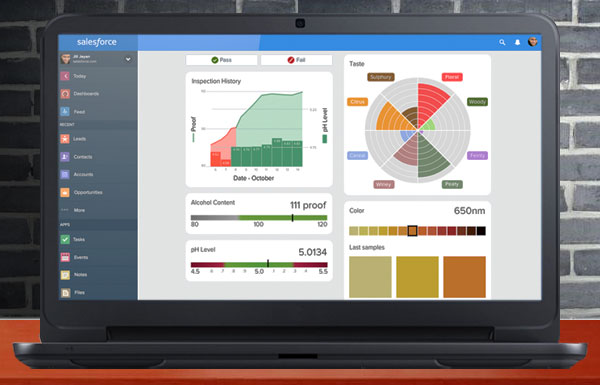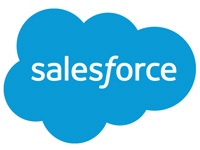Salesforce on Thursday launched Government Cloud Lightning for government agencies, contractors and federally funded R&D centers.
It provides a modern, component-based platform and an intuitive user experience, as well as access to Salesforce’s partner ecosystem, the company said.
Introduced last year, Salesforce Lightning is essentially cloud-based CRM. It’s based on the Salesforce Mobile App and its underlying Lightning framework.Government Cloud Lightning lets users build apps for desktops and mobile devices with Lightning App Builder’s drag-and-drop visual interface. Its Lightning Components provide the building blocks for agencies to create modern apps, Salesforce said.
Agencies can customize existing solutions or create new apps using the Lightning Components the Salesforce ecosystem creates and distributes through its AppExchange.
Salesforce partners and resellers recently landed more than US$700 million in blanket purchasing agreements for Salesforce implementations and integrations, the company said. Customers include the U.S. General Services Administration and the departments of Health and Human Services and Agriculture.
The Lowdown on Lightning
Salesforce Lightning,
Salesforce Lightning was built to improve the core sales features used by sales staff, including the following:
- Activity Feed, which tells users what just happened in an account and what they need to do next;
- Contextual Hovers, which lets users see everything going on with a customer without having to go to different pages in the application;
- Opportunity Board, which gives users the complete picture across all their deals. Users can drag and drop deals from stage to stage just like digital sticky notes; and
- Customizable dashboards with up to nine columns.
Sales Cloud Lightning lets users view critical deals on an interactive home page. It gives them instant alerts and lets them access sales best practices, update forecasts, gain pipeline visibility and track team performance with Sales Wave Analytics.
Users can track activities and write emails from the CRM solution, get recommendations and next steps from within their sales cycle, and get CRM data from their mobile devices, according to the company.
Catching Up With the Competition
Amazon and IBM dominate in the Infrastructure as a Service area, with Microsoft hard on their heels, said Holger Mueller, VP and principal analyst atConstellation Research. Microsoft and Google dominate in the government productivity sector.
“For apps, the cloud hasn’t really arrived yet, but most federal and state governments run SAP or Oracle,” he told CRM Buyer. “Salesforce has made some inroads following the hire of the first U.S. CIO, Vivek Kundra.”
The main challenge is that government “doesn’t do traditional CRM but constituent relationship management, and that’s a very different realm, very tied into often proprietary back-end systems,” Mueller noted. “What Salesforce has done well is the marketplace, allowing for easier procurement of applications. That works for all customers, including government.”
Lightning’s Potential in Government
“Better usability helps all users, whether their paycheck comes from an enterprise or the government,” he said. “The customer in [government] systems is the same consumer commercial companies pursue, so mobile-enablement and intuitive UIs are all winners for any kind of systems.”
While the constituent journey “is very different from the customer story, the good news is that the Salesforce Lightning framework can be extended as needed,” Mueller added. “Technology is neutral to the industry.”
The White House, HHS and the State Department are all Salesforce clients, said Rebecca Wettemann, VP research at Nucleus Research. Microsoft and Oracle also provide cloud CRM solutions to government agencies.
“The difference here is prebuilt functionality, which will reduce deployment time and risk, as well as ongoing support costs,” she told CRM Buyer. CRM “is a key differentiator today for Oracle, and this is an important step for Salesforce to stay in the game.”
Cloud delivers 2.1 times the ROI of on-premises solutions and lets government agencies respond faster to new requirements or regulations, according to Nucleus.
“We expect the public sector will continue to be a highly contested market for cloud CRM,” Wettemann predicted.

























































